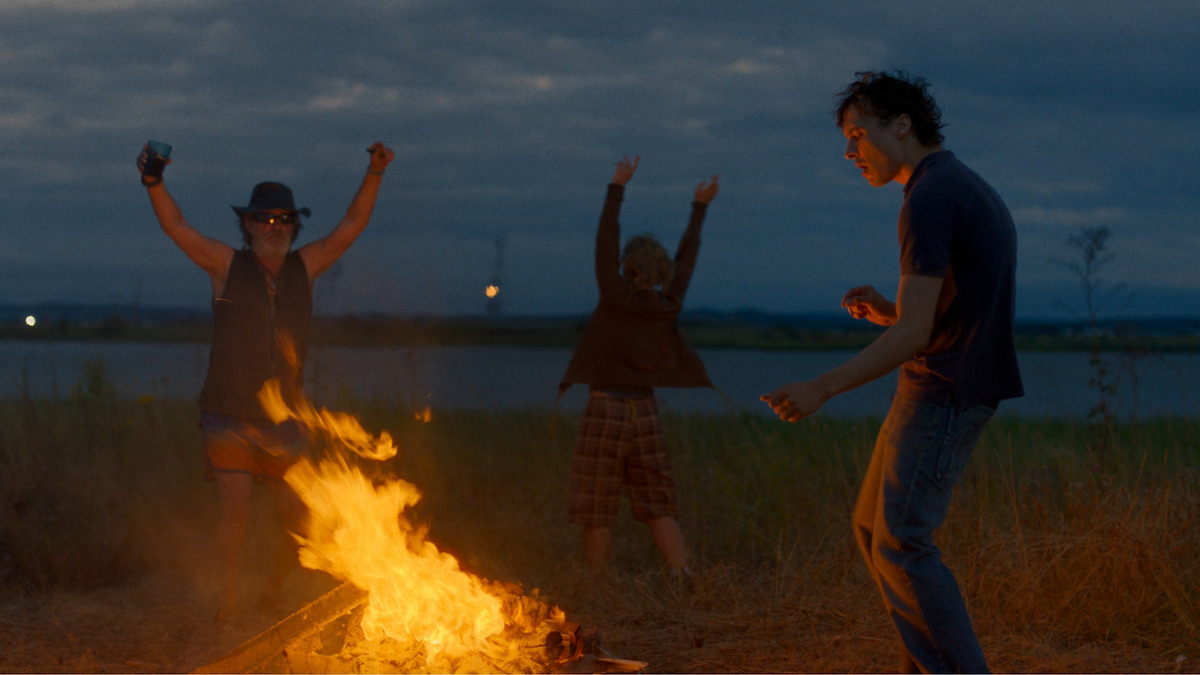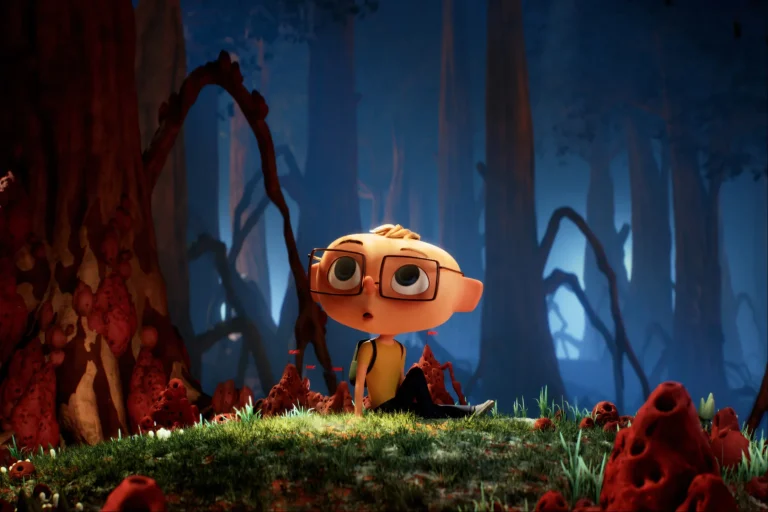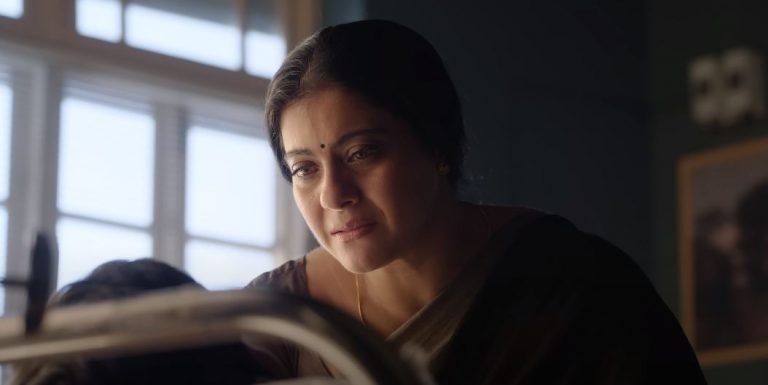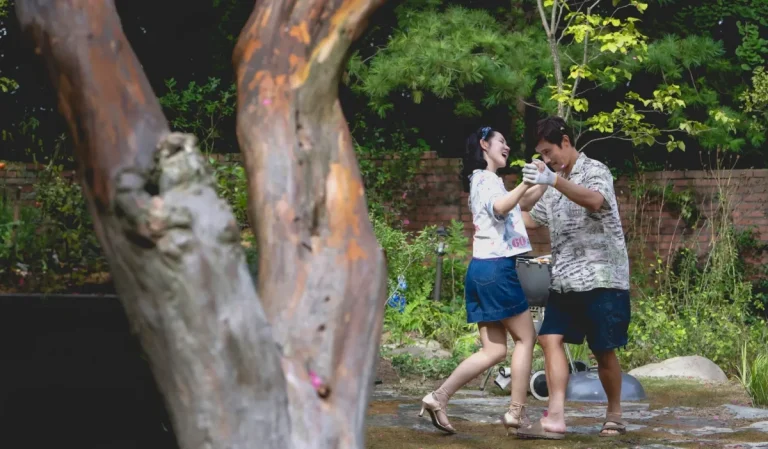It’s not uncommon for prominent actors to test their abilities behind the camera, but it’s rare to find stars whose directorial visions feel unique from their performances. Harris Dickinson has proven to be an exciting young actor, as the 29-year-old star of “Triangle of Sadness” and “Babygirl” has favored divisive, ambitious collaborations with high-minded auteurs over the more traditional leading man roles offered to stars within his age bracket. While Dickinson has already established an impressive resume for himself, his directorial debut, “Urchin,” serves as the announcement of someone who could be a very novel filmmaker. While its focus is hyper-specific, “Urchin” feels urgent, vibrant, and at times willfully experimental.
Set within modern England, “Urchin” only features Dickinson in a supporting role, as the film belongs to breakout star Frank Dillane. Dillane’s character, Michael, is a young man on the edge of society, as the nation’s infrastructure has consistently failed homeless people. Although Michael has attempted to find work and attain skills, a violent incident makes it harder for him to make progress. It’s only after landing a new job that Michael’s eyes are opened to a world that had never been accessible to him before; whether or not this future is sustainable remains an open question.
Although studio films have often expressed sympathy for those who don’t have a solid support system or a reliable source of income, it’s often that those sentiments are used as a venomous attack on the wealthy class, rather than a genuinely empathetic olive branch to those who are left in the shadows. “Urchin” goes to great lengths to show that Michael is an individual, not a statistic, and the experiences he has are not identical to those who face similarly unfortunate circumstances. “Urchin” clips along at a healthy speed, but it also has time to be observational. Rarely does it feel like Dickinson is intruding with naturalistic moments, granting the film an endearing sense of authenticity.
Dillane’s performance is one of the year’s true discoveries, as he has a brash yet charismatic demeanor that makes for a compelling protagonist. It’s suggested that Michael’s brief displays of violence aren’t necessarily malicious, but rather instinctual reactions to the defense system he’s built up after a lifetime of having to scavenge for assistance. The bleak nature of the systems in place is that Michael isn’t given the opportunity to redeem or even explain himself, as society is willing to find any excuse to close any doors of opportunity. The tragic downfall of Michael’s status quo may have felt inevitable, but Dickinson still mines every possible emotion out of the individual steps in his journey.

The ensemble is curiously constructed to resemble the unanticipated ways that figures flow in and out of Michael’s life, as he’s often denied an opportunity to create a relationship that expands beyond an initial introduction. Although the casting is strong throughout, Karyna Khymchuk is a particular standout as a co-worker who shows compassion to Michael as they both navigate a hostile working environment. Dickinson’s performance is also given an appropriate amount of screen time and serves as an antithesis to Michael. Although the appearance of a more recognizable face within a cast of unknowns could have felt like a distraction, it appears that Dickinson was genuinely interested in taking on a part that he may not have been offered otherwise.
Although the narrative and direction of “Urchin” adhere to the raw, sobering approach of British legends like Ken Loach and Mike Leigh, Dickinson shows a surprising willingness to take bold aesthetic swings with a few nightmarish sequences that examine Michael’s existential anxieties. While crafting these sequences was always going to be a challenge, as they would be naturally compared to other techniques used in similarly themed films, they’re of particular note in “Urchin,” which otherwise is crafted more conventionally. Dickinson’s flares of style could be divisive, but he has the wisdom to insert them in moments in which Michael is isolated by his own thoughts. It’s a profound encapsulation of loneliness that also adds a flare of exhilaration to a film that is thoroughly committed to exploring the oppressive mundanity of existence.
“Urchin” is an exercise in formal inventiveness, but it’s not so obsessed with its thematic subtext that it can’t sustain itself as a narrative. Although Dickinson avoids some of the more poetic trappings that could have made the film’s intent feel overstated, “Urchin” is overwhelming in the ambiguous solutions it presents for the problems it’s addressing. The barriers that characters like Michael face aren’t just a matter of access, but in the way that culture is contorted by those with privilege. While it doesn’t revel in its own misery, “Urchin” is rather unflinching in showing the grim outlook for people who simply “disappear,” seemingly without leaving a noticeable impact on their surroundings.
“Urchin” isn’t necessarily presented like a fable, but there’s a freedom in the film’s means of following Michael’s activities without forcibly adhering to conventions. He’s simultaneously a character who feels extremely well-defined and somewhat opaque. While the viewer is exposed to the various ways in which Michael may respond to a given situation, there are also details about his upbringing, past, and core beliefs that are left ambiguous. It’s also quite telling to see the performative edge that Michael has developed in order to “fit in” within established social groups, as he’s become so obsessed with integration that his own identity has been chipped away.
“Urchin” feels like a novelty within the independent cinema scene because it’s rare that a film is so technically advanced, yet still contains the passion of a youthful creative mind. Perhaps such a film would only be possible from someone who was already well-versed in production, but even then, it’s surprising that Dickinson chose such difficult subject material to make his freshman feature. When looking at the greatest actor-turned-directors of all time, it’s worth remembering that titans of the industry like Robert Redford, Clint Eastwood, Warren Beatty, and Rob Reiner didn’t start directing until they already had decades of experience. If “Urchin” is a sign of anything, it’s that Dickinson’s evolution and maturation as a filmmaker will be an exciting process to chart.




![Love, Simon Review [2018]: Everyone Deserves A Great Love Story](https://79468c92.delivery.rocketcdn.me/wp-content/uploads/2018/08/love-simon-screenshot-1-768x432.jpg)



